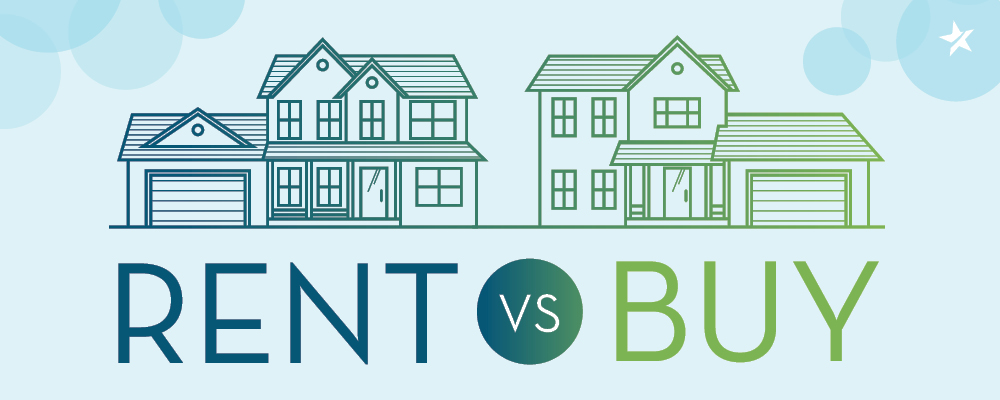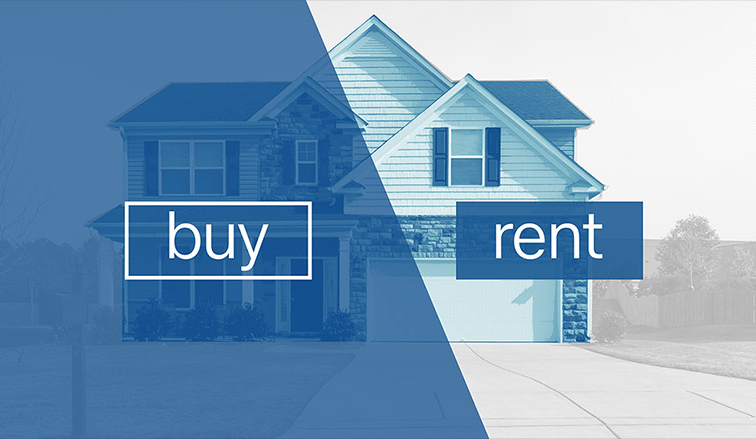
One of the most significant financial decisions that people must make is whether to rent or buy a property. Both renting and purchasing have advantages and downsides, and understanding the benefits and drawbacks of each option is crucial for making an informed decision. This essay examines the advantages and disadvantages of renting versus purchasing a home, concentrating on factors such as financial worries, flexibility, long-term investment potential, and personal preferences.

Renting has the following advantages:
1. Financial Flexibility. Renting provides financial freedom because it frequently has a lower upfront cost than buying a property. Renters save expenses such as down payments, property taxes, and upkeep charges, freeing up income for other uses or investments.
2. Maintenance and Repairs. One of the advantages of renting is that the landlord is often responsible for upkeep and repairs. Renters can enjoy a worry-free living experience without the added expense of major repairs, which can be costly and time-consuming.
3. Flexibility and Mobility. Renting provides more flexibility and mobility than buying. Renters have the opportunity to migrate freely, whether for professional or personal reasons. They can adjust their living environment to changing circumstances without having to sell a home.
The disadvantages of renting:
1. Lack of Equity Building. Renting does not allow you to accumulate equity in a home. Rent payments do not contribute to ownership, and renters do not benefit from possible property appreciation. This may result in a wasted chance for long-term wealth accumulation over time.
2. Limited Control and Restrictions. Renters have little control over the home they live in. They must follow lease agreements, which may contain restrictions on making changes or even having pets. This lack of control may limit personalization and some lifestyle choices.
3. Rent Increases and Insecurity. Renters face potential rent hikes at the end of each lease term, which can have an impact on their monthly budget. Furthermore, landlords may decide to sell the property or terminate leases, resulting in possible uncertainty in long-term housing stability.
Advantages of Buying:
1. Investment and Equity Building. Homeownership allows you to accumulate equity over time. As homeowners pay down their mortgages, they have a greater ownership share in the property and benefit from possible value appreciation. This can be an excellent long-term investment as well as a source of wealth accumulation.
2. Stability and Personalization. Owning a home provides stability as well as the freedom to customise one’s living space. Homeowners can make changes, upgrades, and design decisions to create a totally unique atmosphere.
3. Tax Benefits. Homeownership frequently comes with tax advantages. Mortgage interest payments and property taxes may be deductible, lowering homeowners’ overall tax bill. These monetary incentives can result in extra savings over time.
Disadvantages of Buying:
1. Higher Upfront Costs. Purchasing a property often necessitates a sizable down payment. Down payments, closing costs, and other charges can make homeownership unaffordable or difficult for those with little financial resources.
2. Financial Responsibilities. Homeownership has financial obligations in addition to mortgage payments. Property taxes, insurance, upkeep, and repairs are the responsibility of the homeowner, and these costs can be large, necessitating continual budgeting and planning.
3. Reduced Flexibility. Homeownership provides less flexibility and mobility than renting. Selling a home can be time-consuming and costly, limiting one’s capacity to relocate swiftly or adjust to changing circumstances.
The decision to rent or buy a property is influenced by a variety of factors such as financial capability, lifestyle preferences, and long-term ambitions. Renting gives flexibility, decreased financial responsibility, and cheaper upfront expenditures, whereas purchasing a house provides prospects for equity growth, stability, and personalization. Individuals should, in the end, carefully assess their specific circumstances, examine their financial goals and priorities, and make a decision that is compatible with their current and future demands. The goal, whether renting or purchasing, is to make an informed selection that best meets individual circumstances and tastes.
